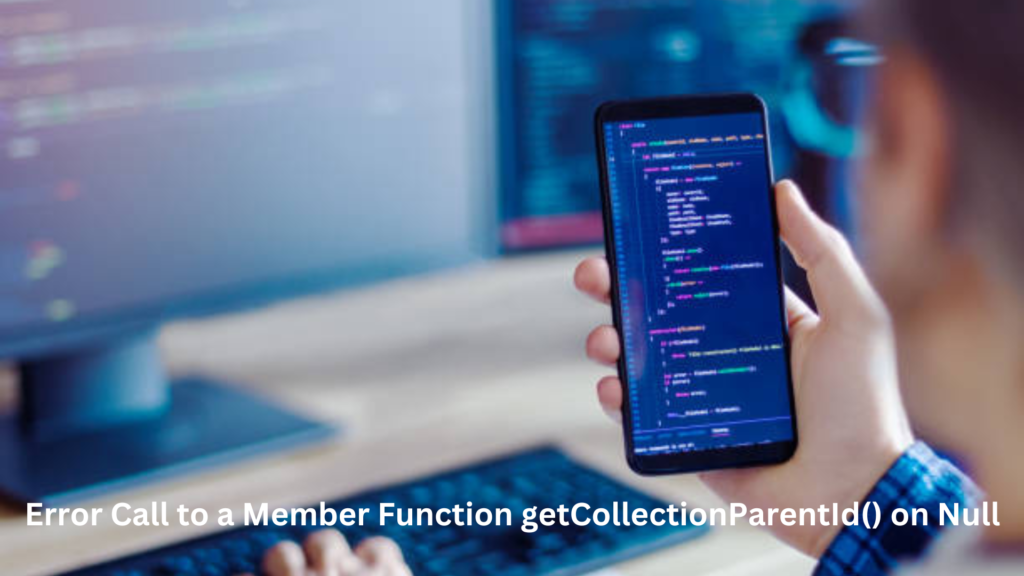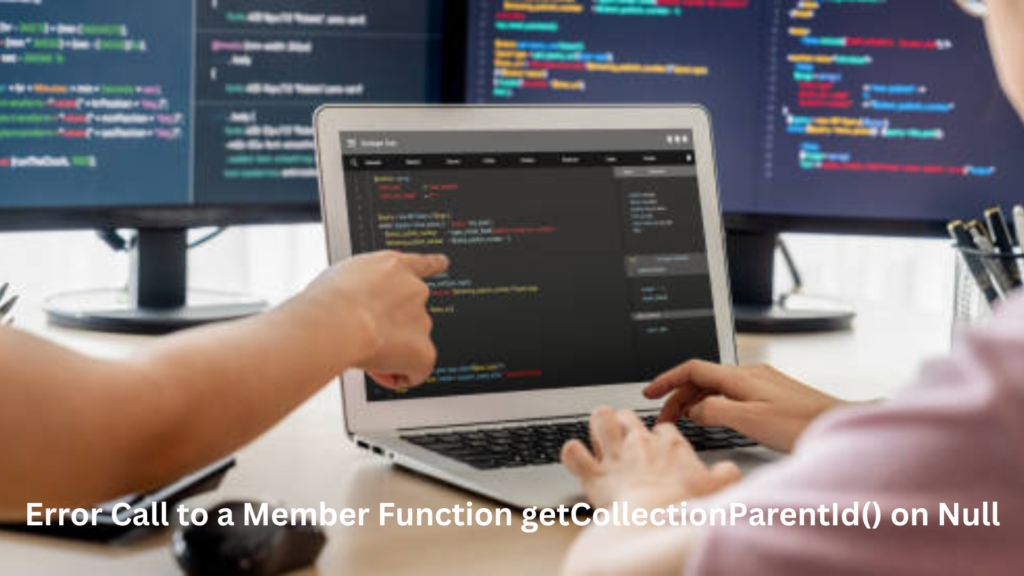When working on software development, encountering errors can be frustrating, especially when they seem vague or hard to trace. One such error that developers often face is “error call to a member function getCollectionParentId() on null”. This issue is common in object-oriented programming languages like PHP or Java, and understanding its root cause is essential for resolving it efficiently. This article will break down the problem, explore its common causes, and provide practical solutions.
What Does the Error Mean?
At its core, the “error call to a member function getCollectionParentId() on null” indicates that you are trying to call the method getCollectionParentId() on an object that does not exist or has not been initialized correctly. Essentially, the object you are trying to use is null, and as a result, it cannot access its methods or properties.
For instance, in PHP:
$parentId = $object->getCollectionParentId(); // Error if $object is null
If the $object is null, PHP throws this fatal error because a null value has no callable methods.
Common Causes of the Error
To fix the “error call to a member function getCollectionParentId() on null”, it is crucial to understand why the object is null. Below are the most common causes:
- Null Object Reference
This is the most frequent cause of the error. The object is either not assigned correctly or lost value during execution.
- Solution: Check whether the object is null before calling the method.
Example in PHP:
if ($object !== null) {
$parentId = $object->getCollectionParentId();
} else {
echo “Error: Object is null.”;
}
By adding a conditional check, you can gracefully avoid the error and handle the null case.
- Improper Object Initialization
If the object is not instantiated correctly, it remains null. This can happen due to a missing class instantiation, an incorrect variable assignment, or early termination of a function.
- Solution: Verify the object is correctly created and initialized before calling its methods.
Example in Java:
MyObject object = new MyObject();
// Properly initialize object properties
if (object != null) {
int parentId = object.getCollectionParentId();
} else {
System. out.println(“Object is null”);
}
Here, we ensure that the object is instantiated correctly and not null before accessing its methods.
- Timing Issues in Asynchronous Operations
When dealing with asynchronous code, such as API requests, database queries, or background threads, objects may not be fully initialized before their methods are called, resulting in a null reference.
- Solution: Synchronize your operations to ensure the object is ready. Use callbacks, promises, or async/await mechanisms to handle these cases properly.
Example in JavaScript:
fetch data().then((object) => {
if (object) {
let parentId = object.getCollectionParentId();
} else {
console.log(“Object is null”);
}
});
Here, we ensure that the object is available only after the asynchronous operation.

Step-by-Step Debugging Tips
To effectively troubleshoot and resolve the “error call to a member function getCollectionParentId() on null”, follow these steps:
- Inspect the Object
Print the object to see its current state. This will help you identify if and where it becomes null.
In PHP:
print_r($object);
- Check Code Logs
Review the application’s log files for warnings or errors that might have caused the object to be null.
- Trace Object Lifecycle
Trace the object’s creation, assignment, and destruction step by step. Ensure that it is correctly instantiated before being used.
- Use a Debugger
A debugger allows you to pause code execution and inspect variables at runtime. This can help you identify the exact point at which an object becomes null.
Practical Example of Fixing the Error
Let’s consider a real-world PHP example where the error occurs and fix it step by step.
Problematic Code:
class Collection {
public function getCollectionParentId() {
return 123;
}
}
$collection = null; // Object not instantiated properly
$parentId = $collection->getCollectionParentId();
Corrected Code:
class Collection {
public function getCollectionParentId() {
return 123;
}
}
$collection = new Collection(); // Properly instantiate the object
if ($collection !== null) {
$parentId = $collection->getCollectionParentId();
echo $parentId;
} else {
echo “Error: Collection object is null.”;
}
We can resolve the error by ensuring the object is instantiated correctly and performing a null check.
Best Practices to Avoid Null Errors
To prevent encountering the “error call to a member function getCollectionParentId() on null”, follow these best practices:
- Always Initialize Objects: Ensure that all objects are instantiated before use.
- Add Null Checks: Use conditional checks to verify that an object is not null before accessing its methods or properties.
- Proper Error Handling: Implement adequate error handling to manage null cases gracefully.
- Debug Early: Use debugging tools to identify null references during development.
- Use Defensive Programming: Assume that null values might occur and write code that handles such cases.
Read Also ; healthtdy.xyz.

Conclusion
The “error call to a member function getCollectionParentId() on null” is a common issue caused by null object references. By understanding the root causes, such as improper initialization, asynchronous timing issues, or lifecycle errors, you can identify and fix the problem efficiently. Always follow best practices like checking for null values, initializing objects properly, and debugging thoroughly to ensure a smooth development process. You can minimize these errors and create more robust, error-free applications with the right approach.








































Comments 1